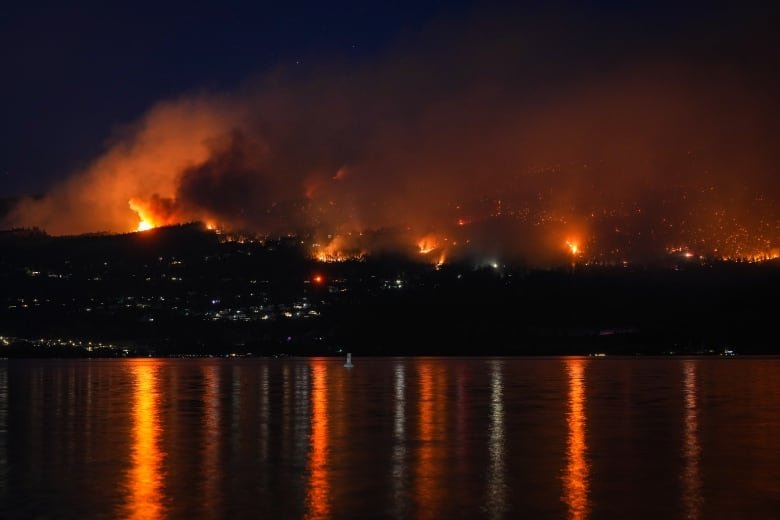Yes, we’re going to talk about another year of warming. You might be tired of the same old tale: another year, another position on the top 10 warmest years, a podium on which we definitely don’t want to stand.
But the past two years have been different — and climate scientists don’t understand why.
We know that fossil fuels are primarily responsible for Earth’s upward-trending temperature and our changing climate. But something else seems to be driving temperatures up, higher than scientists expected or would like.
Last year was 1.48 C warmer globally than the pre-industrial average from 1850 to 1900, beating out 2020’s record of 1.25 C, according to the European Union’s Copernicus Climate Change Service.
The climate service said in its latest monthly bulletin that 2024 is “virtually certain” to be the warmest year on record. They also believe that this year will be more than 1.55 C warmer.
Almost 200 jurisdictions through the Paris Agreement are aiming to limit their warming to well below 2 C above pre-industrial levels, with a target of 1.5 C, to significantly reduce the impact of climate change.
While that limit seems to have breached, it will only be one year, and the threshold looks at long-term warming, not just annual. And there’s a chance we could go back down in the following years, though the global warming trend will continue upwards.

Meanwhile, the U.S. National Oceanic and Atmospheric Administration (NOAA) found in its latest monthly report that January to October’s temperature was the warmest in the 175-year record, at 1.28 C above the 1901-2000 average, and that “it is practically certain that 2024 will rank as the warmest year on record.”
This isn’t what was expected. NOAA’s 2023 annual climate report had pegged this year as having only a 32.58 per cent chance of being the warmest on record.
So, what happened?
Sure, we had an El Niño event, a natural, cyclical warming in a region of the Pacific Ocean that, coupled with the atmosphere, can cause global temperatures to rise. That explained some of 2023. However, the warmth that we typically see after an El Niño was expected to stick around for the first few months of 2024.
“We’re now 11 months going on 12 months after the peak of the El Niño event and global temperatures are still exceptionally high,” said Zeke Hausfather, a research scientist at Berkeley Earth, a non-profit climate analysis organization.
There are some factors that can cause some warming, like the sun being at its peak in its 11-year cycle, which we’re in now; the reduction of the pollutant sulphur dioxide which would typically reflect the sun’s radiation; and the Hunga Tonga–Hunga Ha’apai volcanic eruption in the southern Pacific Ocean in 2022 which put a lot of water vapour into the atmosphere. But Hausfather said those typically contribute a rise of hundredths of a degree, and the timing isn’t right.
Hausfather said a few recent studies he’s read suggest that El Niño may be acting differently than it has in the past, pushed to stick around longer due to the “triple-dip” La Niña — the opposite of El Niño — that we had from the end of 2020 to 2022.
Ahira Sánchez-Lugo, a physical scientist at NOAA’s National Centers for Environmental Information, said the oceans are also playing a big role in the temperatures we’ve seen in 2023 and 2024.
“Much of the Atlantic, the Indian Ocean, the northern Indian Ocean, parts of the West Pacific [were record] warm for the first 10 months of the year,” she said.
And while she had expected to see a jump in global temperatures, she said she didn’t expect to see it so soon.
‘Frustrated’
Climate scientists aren’t gods. They take the data that they have, analyze it and reach conclusions. But for these past two highly anomalous years, they are struggling with what they’re seeing, and it’s difficult for them to know what’s coming next.
“The frustration that we’ve had in not being able to do a better job of explaining [the warming] has just become more and more acute,” said Gavin Schmidt, director of NASA’s Goddard Institute for Space Studies. “It’s been way more frustrating than I would have expected.”
He said that he and other scientists are having a meeting in two weeks, where they may try to reach a consensus as to just why this is occurring.
Scientists warn that this year could end 1.5 C hotter than pre-industrial times, surpassing the current record of 1.48 C set just last year. Some experts now fear Donald Trump’s less-than-friendly stance on climate change could make the crisis even worse.
To be clear, climate scientists know that climate change is happening, and have been very good at forecasting global warming and their effects. But it’s the shorter term that they’re struggling with.
“We are clearly in an era where people expect us to know more about what’s happening climatically in relatively real time,” Schmidt said.
“And yet the community has not really caught up to that new reality, and we haven’t put things in place that would allow us to confidently say or confidently give answers to those questions.”
He and Hausfather wrote an opinion piece about this for The New York Times last week, in which they said climate scientists don’t have methods in place to help them explain “shorter-term phenomena … in real time,” something that they desperately need.
Schmidt said that, when the annual analysis comes out between climate agencies, the exact degree of warming may differ, but the message is the same.
“If it’s accelerating, we need to redouble our efforts to reduce emissions. If it’s not accelerating, we need to redouble our efforts to reduce emissions, regardless of what the temperature is doing.”

